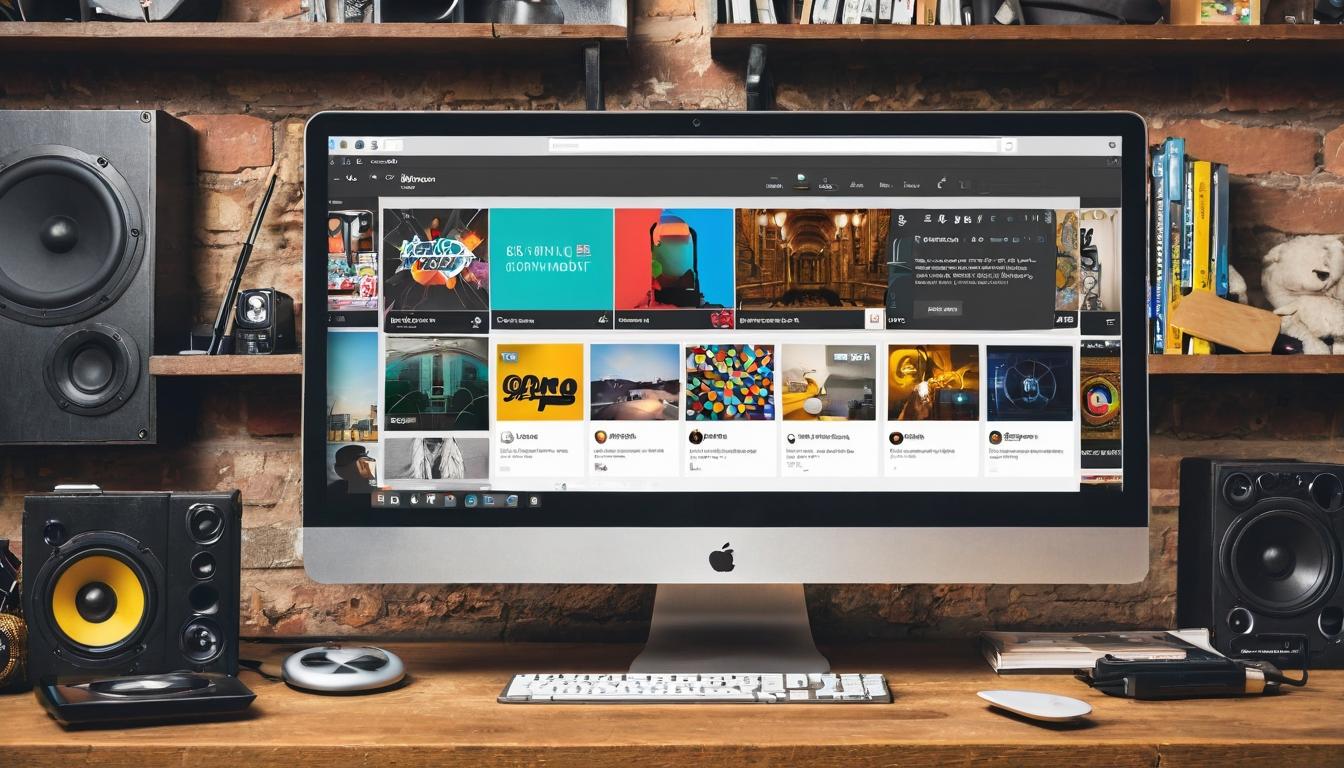In the dim glow of laptop screens across time zones, a quiet revolution is brewing. While major labels chase viral moments and streaming algorithms dictate mainstream playlists, a new generation of artists has discovered something radical: you don't need permission to make music that matters. The tools of creation have democratized, and the results are reshaping our sonic landscape in ways the industry never saw coming.
Walk through any major city's underground music scene today, and you'll find producers who've never set foot in a professional studio yet command loyal followings in the thousands. These aren't hobbyists dabbling in GarageBand—they're sophisticated creators leveraging affordable software, sample libraries, and social media to build careers from their bedrooms. The barrier to entry has evaporated, and what's emerged is a creative explosion that recalls the DIY ethos of punk but operates at digital scale.
What's fascinating isn't just the accessibility of production tools, but how these creators are rewriting the rules of career building. Traditional paths—getting signed, radio play, major tours—have been replaced by TikTok breakthroughs, Discord communities, and Bandcamp Fridays. Success now looks less like chart positions and more like sustainable income from a dedicated fanbase. These artists aren't waiting for gatekeepers to anoint them; they're building their own gates.
The sound itself reflects this new reality. Genre boundaries have become porous to the point of meaninglessness. A single track might weave together hyperpop vocal processing, ambient textures, and drum patterns borrowed from regional scenes the artist discovered through algorithm-driven rabbit holes. This isn't cultural appropriation—it's the natural result of a generation raised with the entire history of recorded music available at their fingertips.
Live performance has transformed alongside the recording process. Where once a "band" meant four people with traditional instruments, now you might find a solo performer triggering samples, manipulating visuals, and singing through effects chains that would have required a studio engineer a decade ago. The stage has become another creative canvas rather than just a reproduction of recorded material.
This shift has created new challenges for the music business establishment. A&R scouts now spend as much time scrolling through social media as they do visiting clubs. Marketing departments struggle to apply traditional campaign strategies to artists who release music when inspiration strikes rather than according to quarterly earnings reports. The very definition of "professional" music is being rewritten in real time.
Perhaps most importantly, this movement represents a fundamental power shift. For decades, the industry operated on scarcity—limited studio time, finite distribution channels, curated radio playlists. Today's creators operate in a world of abundance. The means of production, distribution, and promotion are available to anyone with a smartphone and internet connection. The result isn't chaos, as some predicted, but rather a rich ecosystem where quality finds its audience through new pathways.
What emerges from this new landscape isn't just different music, but different relationships between artists and listeners. The distance between creation and consumption has collapsed. Fans watch songs take shape through Instagram stories, participate in creative decisions through polls, and form communities around shared appreciation rather than geographic proximity. The music becomes a living conversation rather than a finished product.
This doesn't mean the traditional music industry is obsolete—far from it. Major labels have adapted by becoming service providers rather than gatekeepers, offering scaling, marketing, and distribution to artists who've already proven their viability. The relationship has become more transactional and less paternalistic, which ultimately benefits creators who understand their value.
The underground renaissance isn't a rejection of professionalism; it's a redefinition of what professional means. Technical skill remains crucial, but now encompasses coding, visual design, community management, and algorithmic understanding alongside musical talent. The complete modern artist is both creator and entrepreneur, composer and brand manager.
As we look to the future, one thing becomes clear: the genie won't go back in the bottle. The tools that enabled this shift will only become more powerful and accessible. The artists growing up today won't see bedroom production as an alternative path—it will simply be how music gets made. The industry that embraces this reality rather than resisting it will thrive; those clinging to old models will find themselves increasingly irrelevant.
In bedrooms and home studios around the world, the future of music is being written not by executives in boardrooms, but by creators following their instincts. They're building audiences song by song, community by community, rewriting the rules as they go. The result is more diverse, more interesting, and more authentic than anything the old system could have produced. The revolution won't be televised—it'll be streamed from someone's apartment.
The underground renaissance: how bedroom producers and DIY artists are reshaping the music industry

